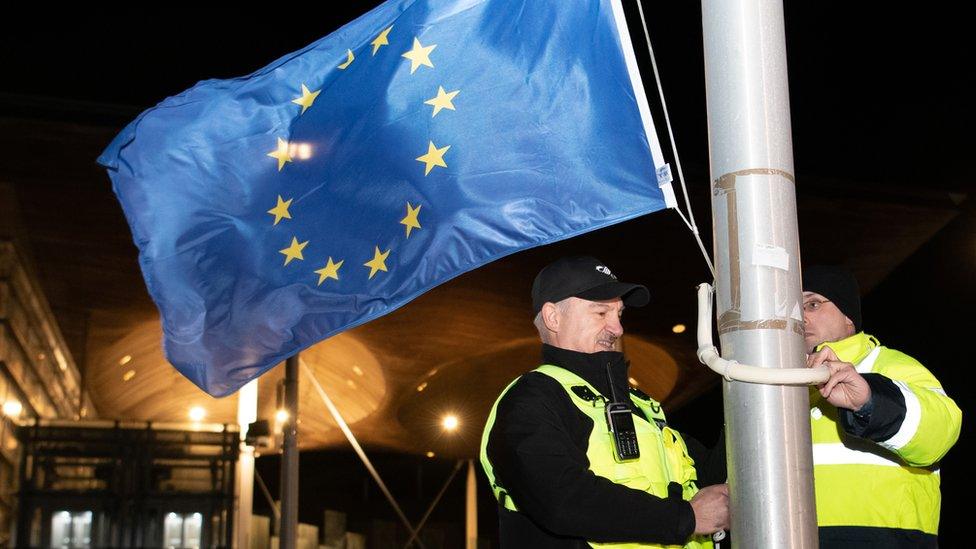Post-Brexit talks: UK's trade stance will cost Welsh jobs, says Mark Drakeford
- Published
- comments
Michael Gove: UK is not seeking EU rules alignment
The UK government is "putting ideology ahead of people's livelihoods" by "rushing" to get any trade deal with the EU, Wales' first minister has said.
UK ministers say they will decide in June whether to abandon negotiations and prepare for a no-deal Brexit.
Ministers say the decision depends on how much ground is covered in talks.
First Minister Mark Drakeford warned of the risk of tariffs "crippling for our farmers and food sector" if the negotiations fail.
But the Welsh Conservatives insisted Brexit will "unleash Wales' potential", and that of the rest of the UK, and all nations of the UK will benefit.
Prime Minister Boris Johnson has pledged to get a deal with the EU by the end of the so-called transition period - 31 December 2020 - and has said he is not prepared to extend that deadline.
His government has now published a 30-page document, external outlining its priorities ahead of the formal start of the talks on Monday.
The document says UK ministers want a trading relationship with the EU based on its existing precedents with Canada, Japan and South Korea.
It allows no jurisdiction for EU law or the European Court of Justice in the UK.
"The government will work hard to agree arrangements on these lines," the document says.
"However if it is not possible to negotiate a satisfactory outcome, then the trading relationship with the EU will rest on the 2019 Withdrawal Agreement and will look similar to Australia's."
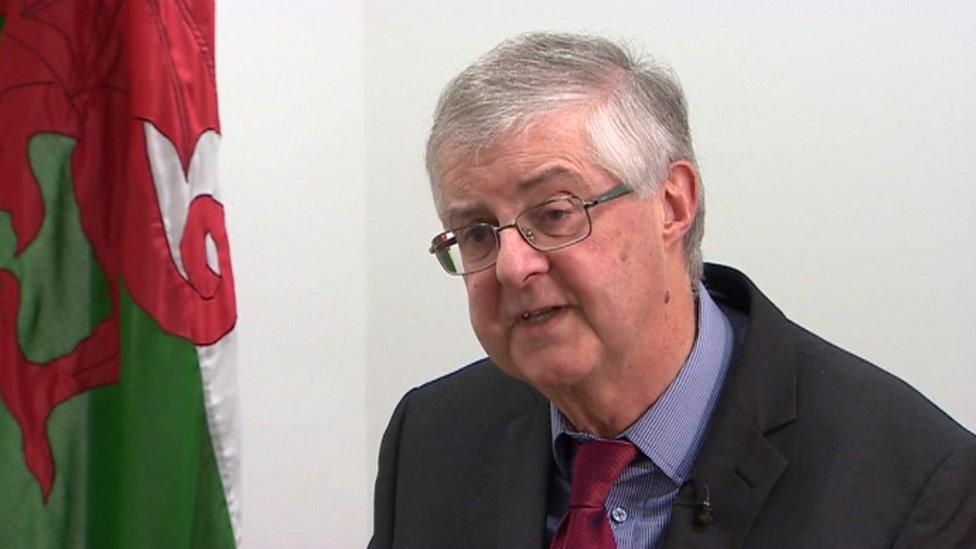
Mark Drakeford: "They are rushing to get a deal - any deal - by the end of the year"
The document says that it hopes the broad outline of an agreement should be clear by June, and capable of being "rapidly finalised" by September.
But Welsh Labour leader Mr Drakeford warned Wales' economy and jobs would be damaged by a "basic, bare bones relationship" with the EU that "lacks ambition and lets down Wales".
"They are rushing to get a deal - any deal - by the end of the year," he said.
"That political ambition is clearly more important to them than getting a deal that is in the interests of all the nations of the UK.
"The proposals put ideology ahead of people's livelihoods."
He added: "Their proposals will mean more paperwork, more delays, more checks on goods and services we export to EU.
"And if the negotiations fail, we also risk facing tariffs which would be crippling for our farmers and food sector."
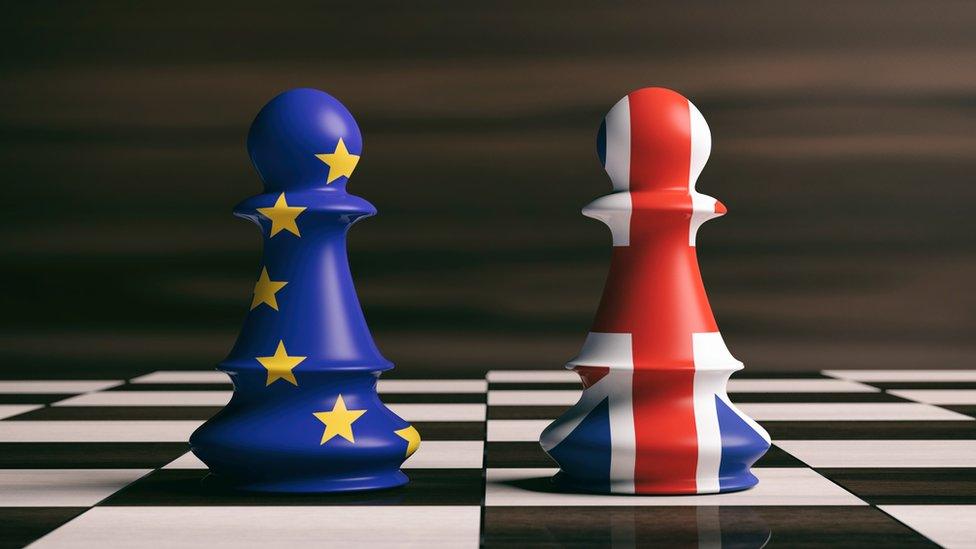
The negotiations are expected to be the toughest the UK has engaged in
Senior UK cabinet minister Michael Gove told MPs the UK wanted to strike a "comprehensive free trade agreement" in nine months.
But the government would not accept any alignment with EU laws as the EU is demanding, he said, adding: "We will not trade away our sovereignty."
The EU has already set out its priorities ahead of the formal start of the talks.
Plaid Cymru MP Jonathan Edwards MP accused the UK government of taking a "belligerent approach to the second phase of Brexit negotiations".
"Rather than playing Russian roulette with people's job and economic wellbeing, would it not be better for the government to take a more grown up approach and remove any arbitrary deadlines," he said.
"The British state may be smug today that they have successfully abandoned the political declaration but if they continue to undermine these serious negotiations it will only lead to chaos."
A UK government spokesperson said it was "committed to working with the devolved administrations to deliver a future relationship with the EU that works for the whole of the UK and strengthens the Union".
The spokesperson added: "The approach to negotiations we have published today is a vision for a relationship based on friendly cooperation between the UK and EU.
"The people of Wales voted for the UK to recover its economic and political independence and we are delivering on that vote."

Analysis
By BBC Wales political editor Felicity Evans
The Welsh Government is angry - it thinks it's been sidelined.
One source texted me to say Michael Gove's statement in the Commons that the devolved administrations had helped shape the strategy is utter rubbish - I'm paraphrasing, their language was a tad stronger.
Ministers had been urging the UK government not to advance a negotiating position on devolved issues without its input.
I'm told Michael Gove's response was that he'd seek to understand their views and reflect them "where we can".
Given that the devolved governments have responsibility for implementing agreements in those areas, you can imagine how that comment went down.
In terms of the content of the strategy, Welsh ministers believe the UK government is putting sovereignty above the economic interests of Wales and the rest of the UK.
The UK government argues it's following the logic of the Brexit referendum result - the majority of voters in Wales, as well as England, wanted to "take back control''.
It also says achieving a good deal on its terms is more than possible.
Well, it won't be long before we find out who's right - but the Welsh Government could now, very publicly, reduce engagement with UK ministers over these talks.
If there is an economic hit early in 2021, it does not want to suffer the blowback in May's Welsh Assembly elections.
- Published27 February 2020
- Published25 February 2020
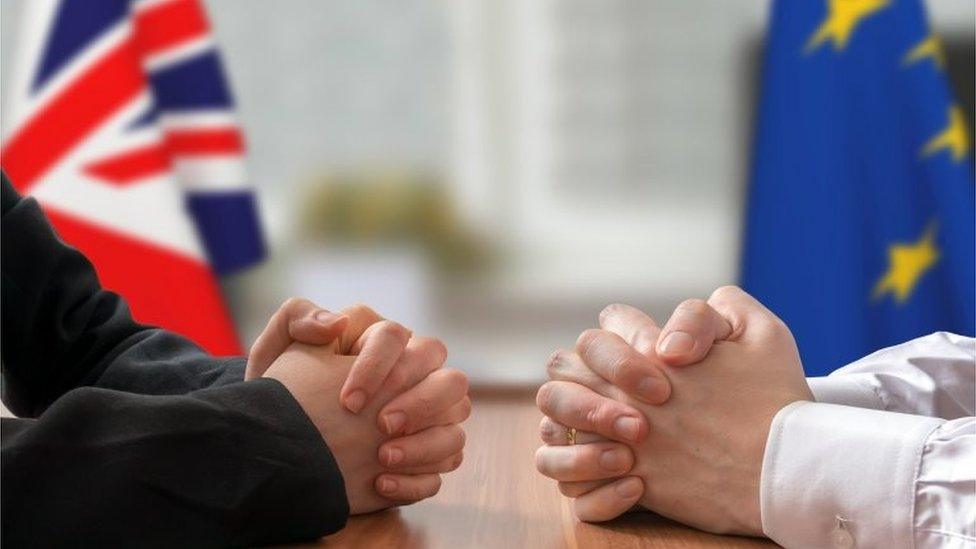
- Published26 January 2020
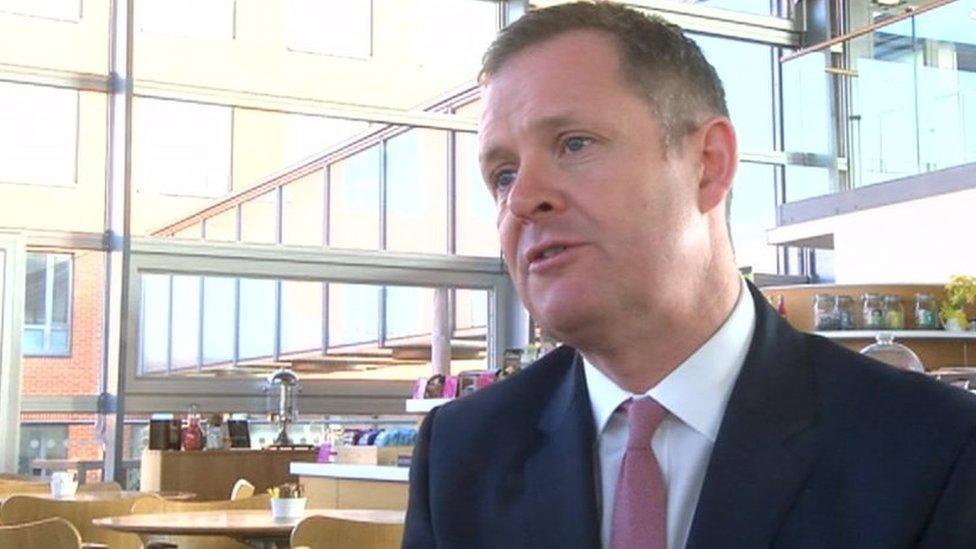
- Published1 February 2020
